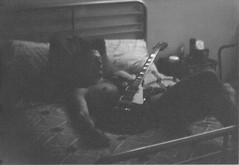Jury duty finished yesterday. I am now free to discuss the case. I'll still leave out the parties' names as there will probably be an appeal.
The case was about defamation of character. A coach at a Catholic high school was suing the father of one of his players because the father had allegedly falsified a press release stating that said coach was under investigation for a number of accusations including inappropriate language and coaching techniques, violent temper, and holding illegal practices.
The facts of the case are that the player's father happens to be an alumnus of the school and also happens to do volunteer work for fundraising and consulting work for all of the Chicagoland Catholic schools. His son was "trimmed" from the team during playoffs his junior year due to rules about roster size, and the son was cut after tryouts his senior year; however, he never complained about playtime or roster decisions. During the junior season playoffs, the father and several other parents from the team met with the school's athletic director and principal to voice concerns, which were promptly dismissed. The father later wrote several letters, memos, and emails to various people at the school and at the Archdiocese voicing his same concerns. In response to all of his correspondences, the recipients claimed no wrongdoing on the coach's part.
Here is where it gets interesting. All of the previous correspondences had been signed as being from the father himself. Several months after the last letter, a freelance reporter who worked at the school fulltime brought in a press release from his newspaper office, purporting to be from the IHSA (Illinois High School Association, a governing body for high school sports), that claimed the coach and the school were under investigation. The press release was promptly shown to have been an anonymous hoax, but the coach and others at the school suspected the father.
The lawsuit was based on the premise that the coach had sustained mental suffering; that ulcers, anxiety, and other health problems flared up; that his coaching and personality style have changed; and that if the press release surfaced years later he could lose a job or not be considered for a position. The plaintiff attorney suggested total damages for defamation on the order of $1.7 Million, plus whatever we saw fit for punitive damages.
As a jury, all twelve of us believed that it was "more probable than not probable" (as required for the burden of proof in this suit) that the father had indeed falsified the press release; thus, we ruled in favor of the coach. Exactly how great the award should be, however, was a point of dispute in the jury room. Myself and a few others took what I believe is a "realist" approach, in that:
- Everyone experiences criticism and potential "mental suffering" in his or her employment, so this coach should "suck it up" and take it.
- The medical conditions claim was not substaniated by a physician, and the conditions had occured prior to the press release, so he would not be entitled to any payment for these.
- A falsified press release reporting an investigation into claims that were not true would not damage his personal or professional reputation, especially now that a jury had ruled in favor of his case.
For these three itemizations of the damages to be awarded, we felt that "nominal damges" would suffice; that is, we're giving the coach his pride (when questioned by the defense attorney. he said this case was not about money, that he just wanted his pride). Since we had ruled in favor of the plaintiff, and therre was a fourth itemized damage, namely "economic loss experienced or reasonably certain to be experienced" as a result, we realized that his attorney fees were technically an economic loss experienced, so we guessed what his lawyer cost and suggested that.
However, many of the other jurors felt that this "poor man" with a "cute little wife who was so nervous to take the stand" deserved quite a sum more. They followed the plaintiff attorney's suggestions. So as a jury, we had everyone name a dollar amount for each category, and then we looked at the average. If anyone had serious issue with the average value, we had further discussion; otherwise, we decided that would be our verdict. So my suggested awards of $0 were cancelled by others' suggestions of $500,000 for the categories, and in the end there were around $300,000 in damages awarded for Count 1 of defamation per se.
As for punitive damages, that was sticky. How much do we feel is a reasonable punishment and deterrent for defamation? We could not look at any real precedent, so we guessed. My personal reasoning was that, if someone hits a road construction worker while driving there is a maximum $10,000 fine; if someone parks in a handicapped parking spot without a permit there is a $500 fine; so for defamation the fine should fall somewhere between those. Others though $1 Million sounded good. What is it about a million dollars that everyone hovers to that number?? Why not $1,034,568.92? But no, something about the nice ring to an even million. Anyway, we averaged somewhere over $400,000 in punitive damages.
Just to point out how silly some people are, I'll add this nice tidbit. The total was somewhere over $750k, though I don't recall the exact amount. But someone in the jury suggested that we just make it an even $800,000. WHY???? Why not make it an even million? Or while we're at it, just round up to one hundred billion dollars! Or shit, while we're doing fuzzy math, why not just round down to $500,000? Thankfully, there were enough of us with common sense that we left the already too-high amount where it was. And we unanimously decided that this was our verdict.
The whole jury duty thing was an interesting experience. I loved watching the attorneys make their cases. They had different styles, and I'd say that both did a pretty good job with their respective claims, given the evidence that was there. It was also interesting to see how the different jurors reacted to the arguments.
So now, I had an extra week at my parents' house, and I made just over $100 for my time. I got to ride the train into the city and walk around a bit downtown on lunch breaks and experienced firsthand our legal system. Am I glad I did it? Yes. Would I want to do it again? No. Did I gain anything else? I know what kind of lawyer I want if I ever get sued, so that would-be jurors get what they're expecting.










 Gears and Coffee
Gears and Coffee